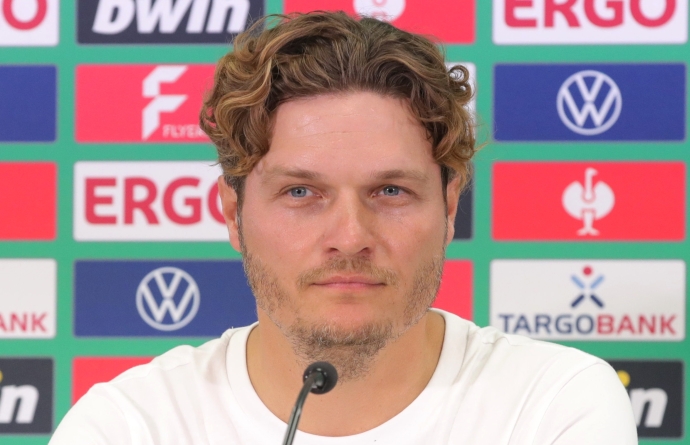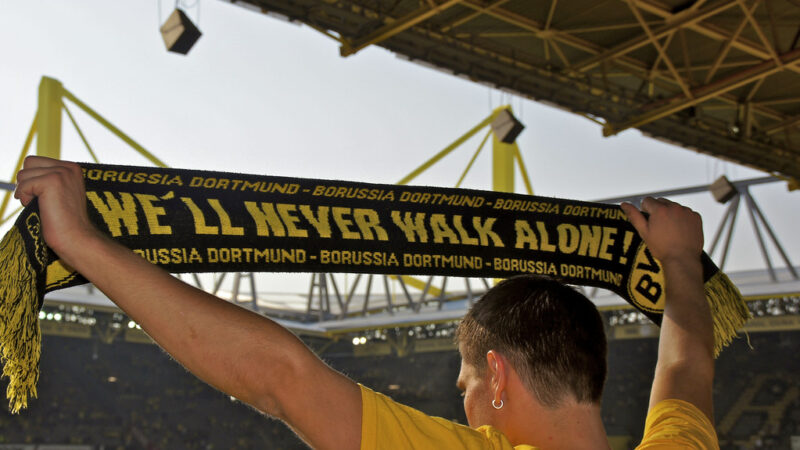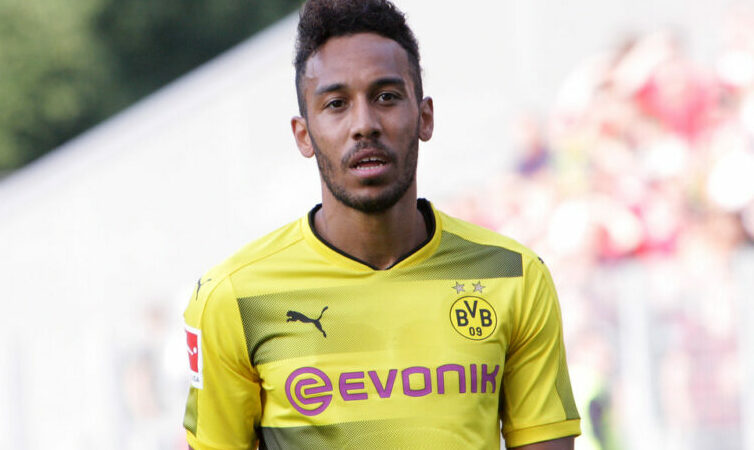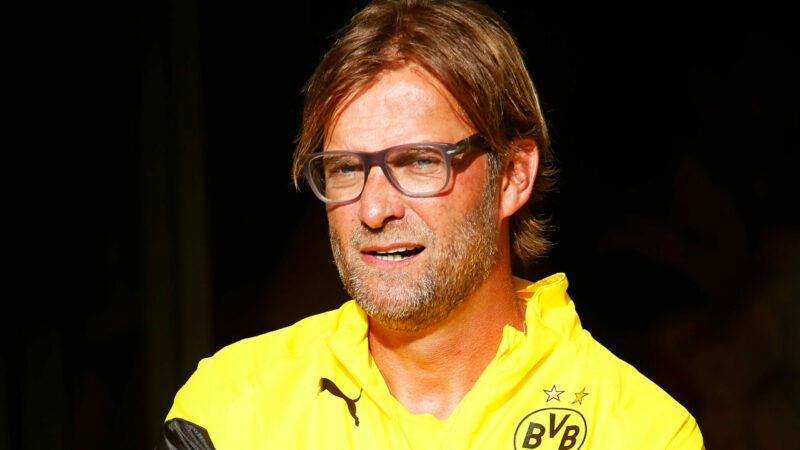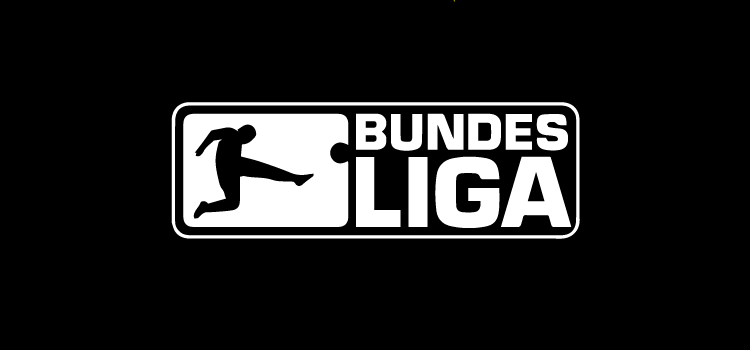Greatest Signings: Matthias Sammer

There are times in a players career when things just don’t work out. This could be for a variety of reasons; injury, suspensions, not getting along with players, managers or fans, not fitting in. Nonetheless, there comes a time when a player just has to admit defeat and accept things just didn’t work out, even though their class is apparent. Sometimes they are on a downward trajectory in their career and move on to a club/clubs where they wind down their playing days. But some go on to bigger and better things. Some move on for the best. Some go to a place where their apparent class can shine through and the past is quickly forgotten. This was the case for Matthias Sammer when he left Inter Milan for Dortmund in 1993.
To understand more about Sammer, the man, you have to go back to his upbringing. Born in Dresden, East Germany, in 1967, Sammer would join Dynamo Dresden in 1976. He would make his full debut for the senior team in 1985, managed by his father Klaus. He stayed at Dresden until 1990, making 102 appearances and scoring 39 goals from defensive midfield. Among his highlights for the club were winning consecutive Oberliga’s in 1988/89 and 1989/90. The latter season would prove to be even more successful for Sammer as he lifted the FDGB Pokal, completing the domestic double.
Upon the unification of the east and west in 1990, Dynamo Dresden were invited into the Bundesliga due to their success in the Oberliga. Sammer would not stick around to help the club acclimatise to life in the much more difficult Bundesliga though. VFB Stuttgart approached Dresden for Sammer’s signature in 1990 and the talismanic captain would make the switch that summer. In his first season for the club, he would establish himself as a force in the middle of the park and score a respectable 11 goals from defensive midfield. The following season, however, Stuttgart would win the Bundesliga on goal difference ironically pipping Dortmund on goal difference in one of the closest title races in Bundesliga history. Matthias Sammer was making a name for himself in the middle of the park, garnering a reputation as one of the best defensive midfielders in Europe. The continent’s best were pricking their ears.
In the summer of 1992, it was Inter Milan who decided to take the plunge and sign the powerful German. He was relatively successful on the pitch, endearing himself to the Inter fans by scoring against Juventus. But, despite four goals in 11 appearances, he was struggling to adapt to the Italian style of play and lifestyle. Sammer wouldn’t see out his first season and would return to Germany after six months. During the German 1992/93 winter break, Matthias Sammer would make the move to the club that would define his club career – he signed for Borussia Dortmund. When the season resumed in January 1993, Sammer never missed a beat. He re-established himself as one of the best players in any position in the Bundesliga. At the back of the season, he would score 10 goals in 17 appearances – from defensive midfield. As Dortmund finished 4th and were runners-up in the UEFA Cup, it seemed that Sammer had taken his game to higher levels. It was clear that he would be an important player for Dortmund for as long as he was there.
The following season proved fruitless to the club, but 1994/95 and 1995/96 were title winning seasons for the club. With Matthias Sammer as captain and under the guidance of manager, Ottmar Hitzfeld, it seemed that BVB were onto something special. Under these two great leaders, that would be proven in the 1996/97 season.
Now playing as a sweeper, Sammer would excel in the Libero role made famous by Franz Beckenbauer and Lothar Matthaus. Playing behind Martin Kree and another club legend in the form of Jurgen Kohler, Sammer was given the freedom to pick up the pieces and drive the team forward from deep. With the extra cover of Paulo Sousa and Paul Lambert in central midfield, this is how Sammer was able to score so many goals even though he played so deep. With Sammer chipping in with goals now and again, and a front three consisting of Stephane Chapuisat, Karlheinz Riedle and Andreas Moller, BVB were not short of goals. After winning the DFB Superpokal at the beginning of the season, beating Kaiserslautern on penalties, Dortmund would finish 3rd in the Bundesliga. But they had bigger fish to fry.
In the Champions League, they came through a group which included Atletico Madrid, Steaua Bucharest and Widzew Lodz, finishing 2nd to Atletico but level on points. They would go on to beat French side Auxerre 4-1 on aggregate in the quarter-finals, and Manchester United 2-0 on aggregate in the semi-final. For the first time in the club’s history, they had made it to the Champions League final. In the final, they would face their toughest test yet against Italian champions Juventus. BVB went into the game as massive underdogs. After all, they had a good team but surely they’d be no match for the likes of Didier Deschamps, Zinedine Zidane, Christian Vieri and Alessandro Del Piero. But, driven on by the imperious Matthias Sammer, Dortmund would upset the odds. Two goals from Riedle and the now iconic winner by Lars Ricken would hand Dortmund their first ever Champions League trophy in one of the competition’s biggest upsets. Sammer proved his class once more, dictating the play from deep as Juve were outclassed.
Internationally, Sammer would also play for the East German national side at every age level. In 1986 he was part of the East German under 18 squad that won the UEFA under 18 Championship and, in 1987, the same squad were runners-up in the FIFA Youth Championship. Sammer made his full debut for the senior squad in 1988 in a Euro ’88 qualifier against France. East Germany wouldn’t qualify for the tournament but Sammer had made enough of an impression in qualifying to become a mainstay in the senior squad. He would soon become captain and skippered the side in their final game, before merging with West Germany, in 1990. He scored both goals as the German Democratic Republic beat Belgium 2-0. He made 23 appearances for East Germany and scored six goals.
As Germany unified upon the fall of the Berlin Wall and communism in Eastern Europe, Sammer was quickly drafted into the German national side. The side was mostly made up of West German players who had won the World Cup in Italy in 1990. But Sammer was too good a player not to be involved. He would be an integral part of the German side who were beaten finalists in Euro ’92 in Sweden. But he would prove just how good he was four years later at Euro ’96 in England. Now playing at Libero for club and country, Sammer had clearly been given a new lease of life. He scored in the opening group game against Russia and again in the quarter-final against Croatia, before playing in the final as Germany would beat the Czech Republic to win the tournament. On the back of his performances for club and country that season, Sammer would win the Balon D’Or. Sammer made 51 appearances for Germany and scored eight goals.
In a cruel twist of fate, Sammer got a serious knee injury. He would only make three more appearances for the club before deciding to retire in 1998. But Sammer would not be kept away. In 2000, BVB were looking for a new manager and it was Matthias Sammer that would answer the SOS. In his first season, he would lead the club to 3rd place, five points behind winners Bayern. But the 2001/02 season would be more successful. After winning the Bundesliga on the last day of the season for the first time in six years, Dortmund would reach the UEFA Cup final. They would finish runners up to eventual winners Feyenoord in Rotterdam, but Sammer had once again put the club on the European map. Sammer had managed to create a successful team by blending youth and experience. He had given new verve to the likes of Jorg Heinrich, Jurgen Kohler and Lars Ricken, but also managed to harness the enthusiasm and class of players like Tomas Rosicky, Dede and Marcio Amoroso. Matthias Sammer had established himself as a legend of the club. This would prove to be his most successful season as a manager though. Unable to repeat these achievements, Sammer was sacked at the end of the 2003/04 season after the club finished 6th.
It goes without saying that Matthias Sammer is one of the greatest German players of all time. He proved time and time again that he was the man for the big occasion. Despite an unfortunate time in Italy, Sammer would recover to redefine himself in a new role as Libero. It says a lot about a player when they can easily transition from one position to another. Matthias Sammer also helped the club rediscover past fortunes, if only temporarily, as a manager. Not only should he be seen as one of the greatest signings ever for the club, but Matthias Sammer should rightly be seen as a club legend.

